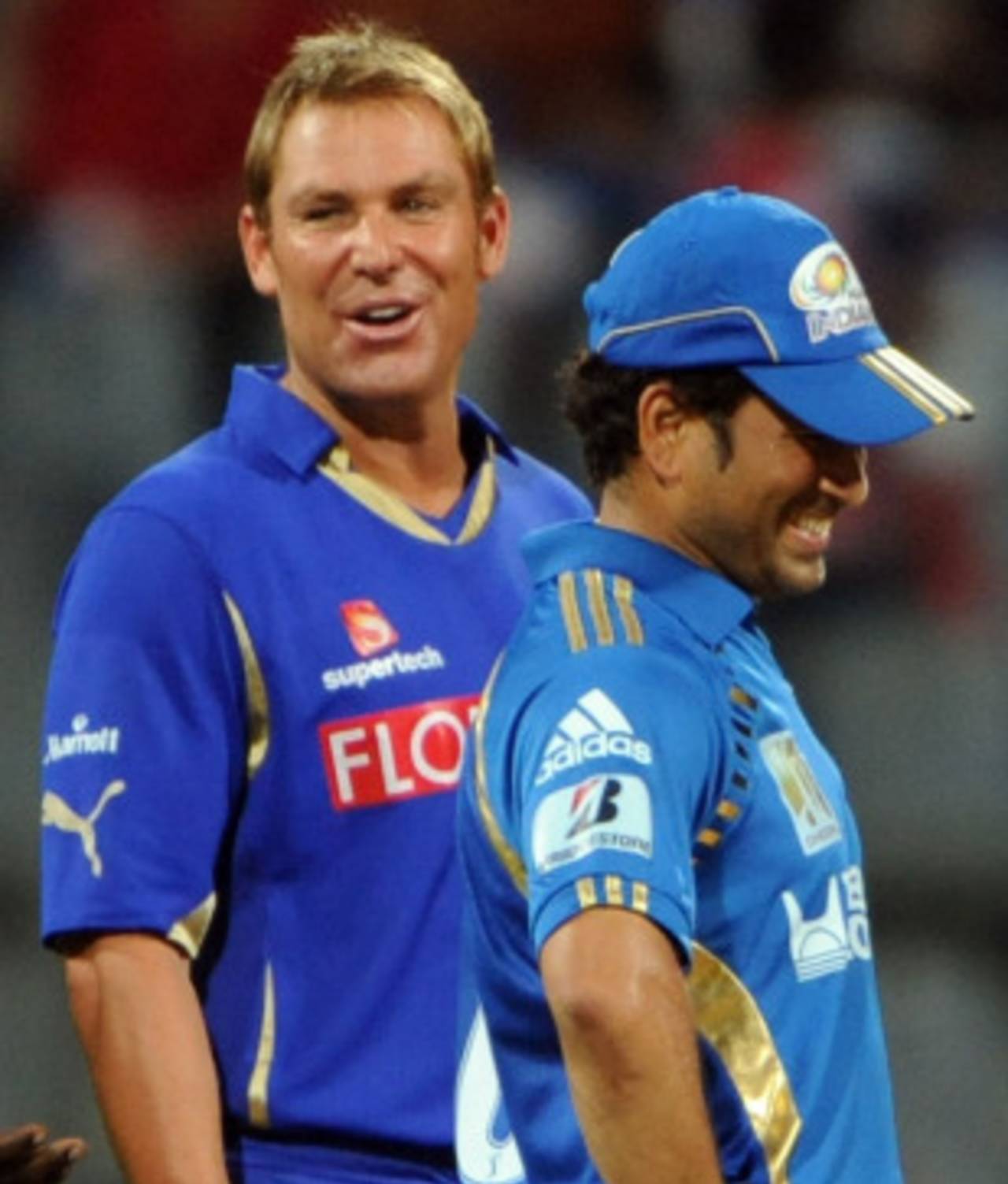So what level of punishment does the BCCI envision for a serious cricketing crime? For instance, what would the use of performance-enhancing drugs or physical violence on the field bring in the way of punishment?
A mere life imprisonment perhaps? Or maybe a leisurely month-long inquisition at Abu Ghraib? Or if really drastic measures are called for, would they consider dusting off the guillotine? Seriously,
a US$ 50,000 fine for
Shane Warne speaking his mind does seem a bit on the high side. When I heard the severity of the sentence, I thought it was a Monty Python sketch in the making.
There's no doubt Warne can pay the fine, so the problem is not with him having to part with 50 grand; although he'd probably prefer to drop it at the nearest casino, where he'd at least have a chance of a win. The dilemma for the officials will occur when a serious offence is committed in the future by a young player who is not highly paid. Because the IPL is a lot like India itself - there are the have-lots and the have-nots - it's difficult to mete out even-handed fines. When player contracts vary between $2 million and 20,000 a year, it's difficult for the commissioners to treat each offence equally. I guess this is where a stiff suspension rather than a fine comes in.
Nevertheless Warne's penalty seems harsh. Especially considering, except in rare cases, in any animated discussion on the game between a cricketer and an administrator, the player will be the closest to reality.
Sure, Warne could have kept his conversation with Mr Dixit private. That way it would have remained a matter for the two of them to resolve. However, my experience tells me that in these cases involving a high-profile player and a back-room boy, the latter likes to flex his muscles and have his 15 minutes of fame.
There's also the not-so-minor matter of Warne playing his final competitive match. The public was not going to be thrilled, never mind the Mumbai Indians, if Warne wasn't available to match wits with Sachin Tendulkar one last time. It could have ruined a potential monster gate. So the officials knew it would be a mistake to suspend Warne for his transgression; that left them with only one option, a fine.
They probably felt they had to be seen to be hard on Warne. Sporting officials have this distinct distaste for personal criticism from players, never mind a public haranguing.
The problem the BCCI has created is one of precedent. The next time a serious offence is committed - and trust me it'll happen - Warne's is the fine by which the punishment for the new violation will be judged.
A devil's advocate might say Warne's steep fine will deter potential future offenders. That's not the way it works. In the heat of the moment something is said or done, and in the aftermath, no matter how much the offender wishes he could do it differently, the act has been committed. If the death penalty doesn't deter potential murderers, I don't like the chances of a steep fine making a highly competitive cricketer think twice before he speaks or acts.
Therein may lie the saving grace for the officials. It's usually only highly competitive players who get themselves into such a state that something offensive is said in the heat of the moment. And it's usually the same players who attain the lofty salary status.
Take Gautam Gambhir, for example. He's shown himself to be vulnerable to the odd bout of anger, but as the highest-paid player in this year's IPL, he'll be able to afford a steep fine if he transgresses.
Heaven knows there are a number of players in the IPL who are not worth the lucrative contracts they signed and they should have to return some of their "earnings" at the end of the season. However, Warne is not one of those players and in his case the punishment didn't fit the crime.
Former Australia captain Ian Chappell is now a cricket commentator and columnist
